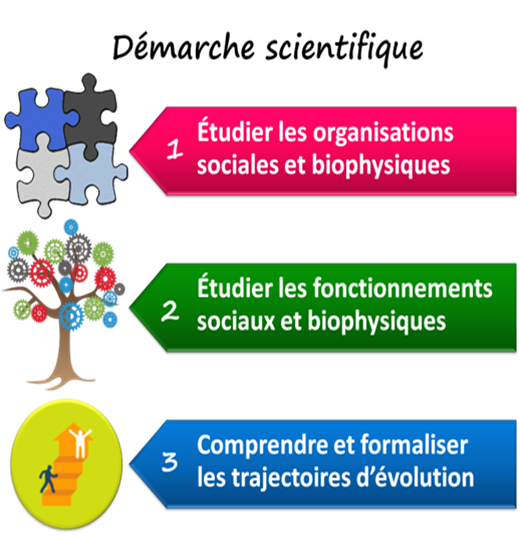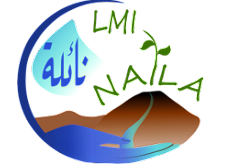The LMI NAÏLA involves research and higher education institutes, whose links with the professional world make it possible to carry out research – training – development missions.
Research activities are based on an interdisciplinary approach that defines the rural environment as a management territory made up of various constituent and functional objects of a social, agronomic and biophysical nature. These objects are then studied according to different disciplinary prisms via a collective approach in three axes.
Identifies the constituent objects relating to water management, and characterizes their biophysical and anthropogenic properties for different nested scales from the plot to the watershed.
Studies the functioning of the territory which integrates the objects, their functionalities and their interactions. This includes anthropogenic and biophysical functioning.
Converges the analyses of axes 1 and 2 to understand past trajectories and current situations. This involves identifying and prioritizing their main determinants, and formalizing possible anthropized scenarios that revisit management methods.

The three axes are closely linked. Axis 1 and 2 are prerequisites for Axis 3. As a result, the broader vision of Axis 3 should make it possible to better identify trends and issues in order to iteratively adapt the production of knowledge at the level of Axis 1 and 2.
